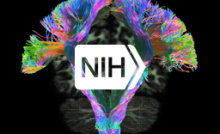
The workshop will be held online December 14-15, 2022 to discuss scientific and technical challenges associated with three complementary BRAIN Initiative Cell Atlas Network (BICAN) reissued funding opportunities.
Building high-resolution cellular atlases at scale, commensurate with the larger brains of humans and non-human primates, requires overcoming several scientific and technical challenges, which is the topic of discussion at an upcoming NIH BRAIN Initiative workshop “High Throughput Imaging Characterization of Brain Cell Types & Connectivity”. The workshop is designed to stimulate discussion on topics associated with a family of three BRAIN Initiative Cell Atlas Network (BICAN) funding opportunities (RFA-MH-22-290, RFA-MH-22-291, RFA-MH-22-292). These funding opportunities request applications to build high resolution reference brain cell atlases for scientists and clinicians to study the healthy brain and enable the development of new therapies for brain disorders.
Ever since Santiago Ramón y Cajal first discovered the diversity in the intricate structures of neurons and other brain cell types over a century ago, neuroscientists have sought to develop a comprehensive atlas of brain cell types as a foundation for understanding brain function in health and disease. The success of NIH BRAIN Initiative funded efforts via the BRAIN Initiative Cell Census Network (BICCN) to build a high-resolution atlas of brain cell types in mice has now paved the way for developing similar atlases of brain cell types for humans, non-human primates, and other mammals based on their molecular composition, structure, and patterns of connectivity.
Funding opportunities for BRAIN Initiative Cell Access Network (BICAN)
BICAN is one of three transformative projects launched by the BRAIN Initiative to develop fundamental knowledge about the brain. This reissued family of NOFOs represents an all-encompassing approach through centers, collaboratories, and coordinating units to advance brain cell atlases.
RFA-MH-22-290: BICAN: Comprehensive Center on Human and Non-human Primate Brain Cell Atlases (UM1 Clinical Trial Not Allowed)
RFA-MH-22-291: BICAN: Coordinating Unit for Biostatistics, Informatics and Engagement (CUBIE) (U24 Clinical Trial Not Allowed)
RFA-MH-22-292: BICAN: Specialized Collaboratory on Human, Non-human Primate, and Mouse Brain Cell Atlases (R01 Clinical Trial Not Allowed)
The first application due date for all funding opportunities listed here is February 1, 2023, with an earliest start date of December 2023. These funding opportunities are organized much like a previous suite of BICAN funding opportunities which culminated in the recent launch of several projects to develop cell atlases and molecular tools for cell access.
Workshop on High Throughput Characterization of Brain Cell Types & Connectivity
The workshop is thematically organized to broadly address challenges in tissue harvesting, processing, labeling, and clearing (Session 1), imaging technologies (Session 2), and data challenges from storage and computing to dissemination (Session 3).
When: The workshop will be held virtually via zoom on December 14 and 15, from 11 a.m. to 4 pm EST.
Registration: Participation is free, but registration is required.
More details on the agenda and workshop schedule can be found here.
For questions and/or reasonable accommodations, email: Laura Reyes at laura.reyes@nih.gov
